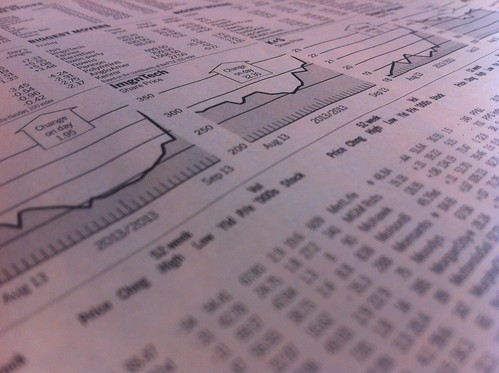Have you ever thought about putting at least a portion of your investment money into stock market indices? Most people have heard of stock index trading and recognized its obvious appeal in not being tied to a specific company, having exposure to a huge segment of the market, having the safety of a well-diversified investment. Well, there’s even more to it than that because the way the big indices are set up, investors get all the standard benefits along with simplicity and peace of mind. If you are considering getting involved in this kind of trading, consider the following points.
What Corporations Get from the Listing
The world’s largest corporations struggle to get listed in an index. It means attention from potential investors, a better reputation in the industry, and long-term financial stability. Household words like S&P 500, FTSE 100, and the DAX from Germany are used by many individuals and institutions all over the world as benchmarks for how the global economy is doing and how each of the home nations is performing. If you are an everyday investor looking to earn a profit in the competitive securities markets, you know that the companies listed are financially stable and that their shares are highly liquid. You’ll never have trouble finding a buyer or seller.
Risk Aversion
In the modern world of risk-averse institutions and individuals, these huge lists of screened corporations are attracting more attention than ever. No one likes to choose winners and losers. Why not just buy shares in an index and take a shot at the total market or sector, without worrying about the risk of one or two companies going under? The proposition makes perfect sense, and it’s why billions of dollars flow into these huge funds every day. In fact, at any given moment, there’s about $12 trillion, collectively, in all the different index funds.
Pre-Screening
For investors, these special lists of companies serve another purpose: pre-screening. If you want to take part in stock index trading, it is possible to gain exposure to each company on the list simultaneously. However, if you prefer to buy some of the best tech, financial, or manufacturing stocks, it’s possible to use indices as a source of screened selection. Many investors don’t buy any company’s stock unless the corporation is listed on a major index.
Adaptability
Whenever a single company goes bankrupt, the situation can affect the entire group of stocks, especially when the list contains only 20 or 30 entities. It’s happened in the recent past that a major bankruptcy will cause a particular collective group to suffer. Those kinds of hits usually cause the trading authority to coax the index to add more members and tighten its membership requirements. Germany’s DAX did just that when a recent financial fall by one of its members hit the entire group hard. The response was that DAX will add 10 members to the list and make profitability part of the criteria for entry. Before, DAX’s entry rules only looked at a company’s liquidity and total capitalization.
Rebalancing
For investors who worry about equal representation on a list like the Dow Jones Industrial Average, there is indeed a very real problem when changes take place. However, rebalance moves are part of growth and change within the economy as a whole, and the DJIA consists of 30 member firms and changes are made about every two years, on average. When a decision is made to add or remove a firm, investors are forewarned, so there’s never a case of surprise moves. These are all very conservative, careful organizations in any case.
COVID Concerns
Individuals and institutions tend to look for safe havens in times of crisis. That’s true with the current virus pandemic as well. One of the consequences of the global spread of the illness has been a search for such safe havens. For many traders, that means precious metals like gold, silver, and platinum. For many others, it means investing hard-earned income not in individual company shares but in groups of companies.
Since the worldwide virus first hit in March of 2020, index investing has grown in popularity. In some cases that money represents new accounts of people trading for the first time. Others are long-term market enthusiasts and large institutions in search of a safe place to park their money. One aspect of a crisis that tends to spook even the hardiest financial mavens is the prospect of bankruptcy of individual firms. Thus, the flow of money toward the DJIA, S&P 500, DAX, and FTSE 100 has been greater than ever.
